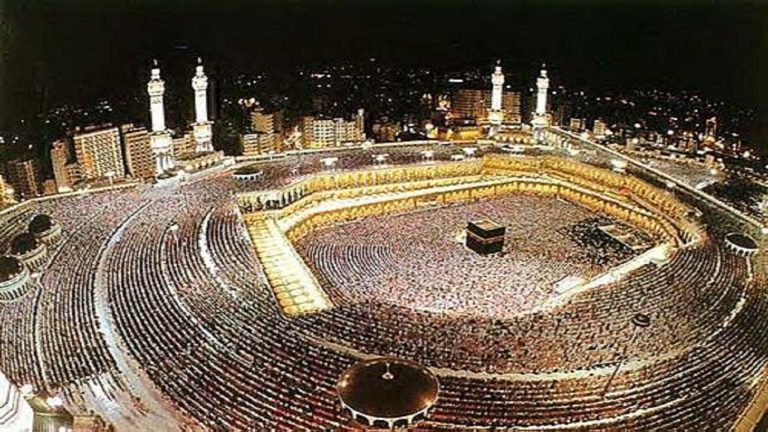Islamic Beliefs in God and the Afterlife: Exploring Faith, Purpose, and Hope
Embark on a soul-stirring journey through Islamic beliefs in God and the afterlife. Discover the profound significance of faith, purpose, and hope in the lives of Muslims worldwide. Dive into the depths of mercy, justice, and wisdom as we explore the nature of Allah. Unveil the eternal promises of paradise and the solemn warnings of hellfire, guiding believers towards righteousness and redemption. Join us in embracing faith, finding solace in the eternal embrace of divine love and mercy.

Introduction
In a world brimming with diverse beliefs and ideologies, the concept of God and the afterlife holds profound significance for billions of people, particularly those who adhere to the Islamic faith. Islamic teachings offer a comprehensive worldview that encompasses spiritual, moral, and practical guidance for adherents. Let’s embark on a journey to delve into the depths of Islamic beliefs regarding God and the afterlife, exploring their relevance and significance in the lives of Muslims around the globe.
Defining Islamic Beliefs
Islamic beliefs revolve around the monotheistic principle of Tawhid, the absolute oneness of Allah (God). Muslims believe that Allah is the sole creator, sustainer, and ruler of the universe, transcending human comprehension and surpassing all worldly limitations.
Islamic beliefs are not merely a set of doctrines; they are the very foundation upon which the universe rests. They are the crystalline waters from which the rivers of faith flow, nourishing the souls of those who seek divine guidance. To define Islamic beliefs is to touch the ineffable, to grasp at the essence of the infinite with mortal hands.
In every verse of the Quran, in every word uttered by the Prophet Muhammad (peace be upon him), Islamic beliefs are woven into the fabric of existence, weaving a tapestry of divine wisdom and mercy. They are the threads that bind humanity to the divine, guiding us through the labyrinth of life with unwavering certainty.
To define Islamic beliefs is to embrace the majesty of Tawhid, the oneness of Allah, whose presence permeates every atom of the cosmos. It is to stand in awe of His attributes – His mercy that knows no bounds, His justice that transcends human understanding, His wisdom that guides the course of history.
In the hearts of believers, Islamic beliefs are like a flame that burns bright in the darkness, illuminating the path to salvation and eternal bliss. They are the compass that points towards the celestial shores of paradise, where the faithful are welcomed into the embrace of their Lord.
To define Islamic beliefs is to dive into the ocean of divine knowledge, to immerse oneself in the depths of spiritual truth. It is to surrender to the majesty of Allah, to bow before His infinite wisdom, and to find solace in the knowledge that He is ever-present, ever-loving, and ever-merciful.
In the end, to define Islamic beliefs is to embark on a journey of the soul, to seek meaning and purpose in a world fraught with uncertainty. It is to find peace in the embrace of faith, to find hope in the promise of eternal life, and to find love in the boundless mercy of Allah.

Significance in Daily Life
The belief in Allah’s omnipotence and benevolence infuses every aspect of a Muslim’s life, serving as a source of comfort, strength, and guidance. From the mundane to the monumental, the awareness of Allah’s presence shapes the thoughts, actions, and aspirations of believers.
The Nature of God
Central to Islamic theology is the concept of Allah’s attributes, which encapsulate His perfection, mercy, justice, and wisdom. Understanding these attributes is paramount for comprehending the relationship between humanity and the divine.
Mercy and Compassion
Allah’s mercy is boundless, extending to all creation regardless of their faith or deeds. Muslims believe in seeking Allah’s mercy through sincere repentance and acts of kindness towards others.
Allah introduces Himself to humanity in the Quran with the beautiful and encompassing names “Ar-Rahman, Ar-Raheem” – “The Most Merciful, The Most Compassionate.” These attributes are not merely descriptive; they are fundamental to Islamic beliefs in God. Every chapter of the Quran (except one) begins with this invocation, underscoring the centrality of mercy and compassion in Islam. These divine qualities assure believers that Allah’s mercy is vast, boundless, and accessible to all who seek it.
One of the most comforting aspects of Islamic beliefs in God is the promise of His mercy in the afterlife. The Quran repeatedly assures the faithful of Allah’s forgiving nature and His readiness to pardon those who turn to Him with sincere repentance. The verse, “My mercy encompasses all things” (Quran 7:156), is a testament to this boundless compassion, offering hope and solace to believers that no sin is too great to be forgiven, and no soul is beyond redemption.
This divine mercy extends to the Day of Judgment, a cornerstone of Islamic beliefs in the afterlife. On this day, every individual will stand before Allah to account for their deeds. While this is a moment of ultimate accountability, it is also one suffused with the promise of Allah’s mercy. The Prophet Muhammad said, “Allah’s mercy is greater than His wrath,” highlighting that divine compassion will play a pivotal role in the judgment process. This belief instills a deep sense of hope in believers, encouraging them to live righteously while trusting in Allah’s boundless compassion.
The concept of mercy is intricately linked to the Islamic understanding of paradise (Jannah). Descriptions of Jannah in the Quran and Hadith are vivid and alluring, depicting a place of eternal peace, joy, and fulfillment. It is portrayed as a reward for the righteous, a manifestation of Allah’s ultimate mercy and generosity. The Quranic verse, “And those who believed and did righteous deeds will be admitted to gardens beneath which rivers flow, abiding eternally therein by permission of their Lord, and their greeting therein will be, ‘Peace!'” (Quran 14:23), reflects this promise of divine mercy realized in the afterlife.
Furthermore, Islamic beliefs in God emphasize that His mercy is not reserved solely for the afterlife but is ever-present in this world. Believers are encouraged to invoke and rely on Allah’s compassion in their daily lives, seeking His guidance and forgiveness. The phrase “Bismillah ir-Rahman ir-Raheem” – “In the name of Allah, the Most Merciful, the Most Compassionate” – is recited at the beginning of every significant act, embedding a sense of divine mercy in the fabric of everyday life. This constant remembrance fosters a deep, personal connection with Allah, filled with trust and reliance on His compassion.
Islamic teachings also encourage believers to reflect Allah’s mercy and compassion in their interactions with others. The Hadith, “The merciful will be shown mercy by the Most Merciful. Be merciful to those on the earth, and the One above the heavens will have mercy upon you,” calls on Muslims to embody these divine qualities in their lives. This principle is a guiding light for social conduct, promoting empathy, kindness, and forgiveness as reflections of divine mercy.
In the broader narrative of Islamic beliefs in God and the afterlife, mercy and compassion are the threads that weave together the human experience with the divine promise. They provide a profound sense of hope and reassurance that Allah’s compassion is ever-present, guiding believers through the trials of this world and into the eternal peace of the hereafter.
Understanding Allah’s mercy and compassion deepens the spiritual journey of a Muslim, instilling a sense of hope and unwavering faith in divine benevolence. It is a reminder that no matter the challenges faced in life, every soul is cherished and valued by a compassionate Creator. This belief not only shapes the way Muslims live their lives but also offers profound comfort and hope for what awaits in the afterlife, reaffirming that Allah’s mercy is the ultimate refuge and the eternal promise for all believers.
Justice and Fairness
While Allah is compassionate, He is also just. Islamic teachings emphasize the accountability of individuals for their actions, with the assurance that Allah’s judgment is based on fairness and equity.
Wisdom and Omniscience
In His infinite wisdom, Allah orchestrates the unfolding of events according to His divine plan. Muslims find solace in surrendering to Allah’s will, trusting in His knowledge of what is best for them.
The Afterlife: A Journey Beyond
Islamic beliefs regarding the afterlife provide a framework for understanding the purpose of earthly existence and the ultimate destiny of human souls. The Quran and Hadith offer vivid descriptions of paradise (Jannah) and hellfire (Jahannam), motivating believers to strive for righteousness and avoid wrongdoing.
Paradise: Eternal Bliss
Jannah is depicted as a paradise of unimaginable beauty, where the righteous are rewarded with everlasting delights and proximity to Allah. It is a realm free from pain, sorrow, and worldly limitations, where believers are reunited with their loved ones and bask in the divine presence.
Hellfire: Just Retribution
Conversely, Jahannam symbolizes the consequences of disobedience and ingratitude towards Allah. It is portrayed as a place of torment and anguish, where sinners face the consequences of their actions and regret their choices in vain.
Understanding the Purpose of Life
Islamic teachings emphasize the transient nature of earthly life and the imperative to prepare for the hereafter. Believers are encouraged to cultivate virtuous traits, perform righteous deeds, and adhere to divine guidance as a means of attaining salvation and eternal felicity.
Test of Faith
Life is perceived as a test of faith, wherein individuals are granted free will to choose between obedience and disobedience to Allah’s commandments. Every trial and tribulation serves as an opportunity for spiritual growth and moral refinement.
Seeking Divine Pleasure
The ultimate goal of a Muslim is to attain Allah’s pleasure and forgiveness, striving to embody the qualities of piety, humility, and compassion exemplified by the Prophet Muhammad (peace be upon him).
Conclusion: Embracing Faith, Hope, and Redemption
In the tapestry of Islamic beliefs, the notions of God and the afterlife form the warp and weft, weaving together a narrative of faith, hope, and redemption. For Muslims, the conviction in Allah’s mercy and the promise of an eternal abode in paradise instill a sense of purpose, resilience, and optimism in the face of life’s trials and tribulations.
As we journey through the vicissitudes of existence, let us heed the timeless wisdom of Islamic teachings, anchoring our souls in the remembrance of Allah and the anticipation of a blissful eternity in His divine presence.

Frequently Asked Questions (FAQs)
Q: How does Islam view the concept of God?
A: Islam views God (Allah) as the supreme and absolute being, beyond human comprehension yet intimately involved in the affairs of His creation. Muslims believe in the oneness of God and His attributes of mercy, justice, and wisdom.
Q: What happens after death according to Islamic beliefs?
A: According to Islamic beliefs, after death, individuals undergo a period of waiting until the Day of Judgment. Depending on their deeds, they will be judged by Allah and sent to either paradise (Jannah) or hellfire (Jahannam) for eternal reward or punishment.
Q: How do Muslims strive for salvation in Islam?
A: Muslims strive for salvation by adhering to the five pillars of Islam, performing acts of worship, maintaining good character, and seeking forgiveness through sincere repentance. Belief in Allah and His messenger, Muhammad, is central to attaining salvation.
Q: What role does faith play in the lives of Muslims?
A: Faith (iman) is the cornerstone of a Muslim’s identity and worldview. It provides believers with a sense of purpose, guidance, and hope, shaping their actions, decisions, and aspirations in accordance with Islamic teachings.
Q: How do Islamic teachings address the purpose of life?
A: Islamic teachings emphasize that life on earth is a temporary journey designed to test individuals’ faith and deeds. The ultimate purpose is to worship Allah, seek His pleasure, and attain eternal felicity in the hereafter.







